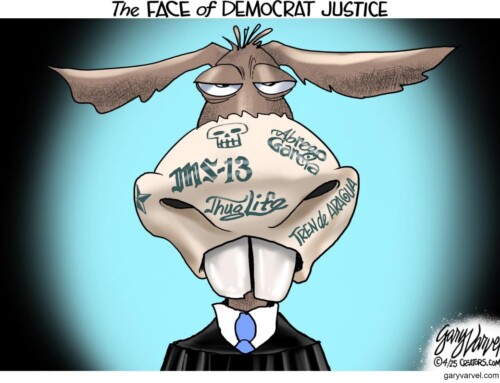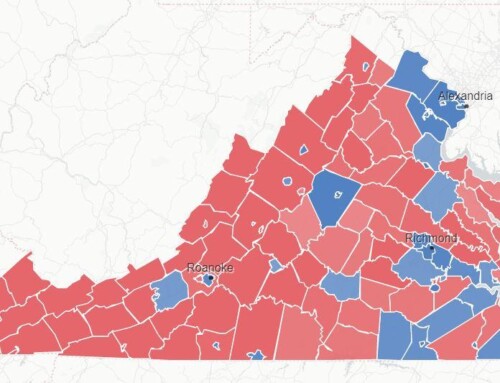Early in December the Fauquier Times Democrat published a letter co-authored by Senators Webb and Warner, Governor McDonnell, House Representative Cantor and U.S. Senate candidates Allen and Kaine entitled “Update tax policy, rebuild schools.” The letter was written in praise of tax breaks that are to be given to private companies who join in a public-private partnership with local and state governing bodies to renovate older school buildings. The letter stated that private businesses would be able to create jobs, get a tax break for doing so and localities would get updated schools. Sounds great, right? Well, before we break out the New Year’s celebratory bubbly again, I invite you to take an in-depth look behind the curtain of this seemingly beneficial gambit to see the many levers the Wizard is pulling.
First, there is a tax break to a specific qualifying entity. This means a governmental body or representative will decide which entity will be the beneficiary of our tax money and what special requirements will have to be met to get the “free” money. This becomes a way of doling out as favors our tax dollars when certain government-specified requirements are completed while, at the same time, siphoning our tax revenues into programs that will not be used for actual constitutionally-sanctioned governmental responsibilities. It also instills into the process an avenue for favoritism toward corporate entities in the private market and by its very nature gives more power to our elected representatives who will decide who is favored. Hence, the government has once again reinforced the value in having lobbyists working “our” Representatives in government.
Stepping into the middle of this tax shell-game is the public-private partnership (PPP). This scheme brings together the government and a private sector company or companies to accomplish a project. Again, all the attributes of manipulation and human frailty are on display as money and power are brewed up in a tempting cocktail. Since the government is the 800 pound gorilla in any deal with a private enterprise, they get to set all the rules and requirements for the companies vying for the projects in this program, thereby further enhancing their power and influence. For their part the hopeful winners-to-be-chosen by government will do almost anything to become the recipients of sole-source contracts with all the benefits of a partner with seemingly unlimited funds. Where are we headed as we see more and more of these PPPs? The obvious answer is Crony Capitalism.
The definition of Crony Capitalism found in Wikipedia is:
“a capitalist economy in which success in business depends on close relationships between business people and government officials. It may be exhibited by favoritism in the distribution of legal permits, government grants, special tax breaks, and so forth. The military-industrial complex in the United States is often described as an example of crony capitalism in an industry. Connections with the Pentagon and lobbyists in Washington are described by critics as more important than actual competition, due to the political and secretive nature of defense contracts.”
Crony Capitalism has much to do with crony and little to do with capitalism – which is a market economy subject to minimal state interference. It is more akin to a form of government established by Mussolini during World War I and less to do with the Free Enterprise system explained by Adam Smith in “Wealth of Nations”. Fascism, as practiced in Italy prior to World War II, advocated a state-directed, heavily regulated economy. Mussolini promoted the idea that state enterprise was to be favored over private enterprise. Under this system the government picks winners and losers.
When the government spends our tax dollars in the form of grants, subsidies and tax breaks, it means that certain companies and sectors of the economy benefit, and others suffer. The sectors and companies that benefit are not necessarily those that bring the most or the widest prosperity. The spending is also accompanied by regulatory privileges and barriers that also benefit the very same groups. When government spending levels and regulatory operations are high, it has a widely distortive effect on the economy that effectively impoverishes much of the population that is not “favored”.
This objection to cronyism is at the very heart of the Tea Party movement. It is why the bailouts irked so many. It is, in fact, a deep part of the Occupy Wall Street movement. There obviously is a lot wrong with the Occupy Wall Street movement, but the protestors have helped highlight the problem of the alliance between Big Business and Big Government. Many corporate behemoths long ago made their peace with Uncle Sam and now actively lobby the Feds (and states) to safeguard their market shares and guarantee their profits.
So, after thinking this through, I have an idea. Why not let a School Board that is in need of funds to remodel a school go directly to the citizens and the Board of Supervisors in their locality with a legitimate plan, get the funds agreed to in an open, transparent process, bid the project out in a fair, competitive market to firms that would use local labor to complete the project? All this can be done locally without the help of Big Brother and without all the strings and junk. After all, a tax break to a targeted group, contrary to public opinion, is never simple or free.
Rick Buchanan
Event Chair, VTPP Federation





